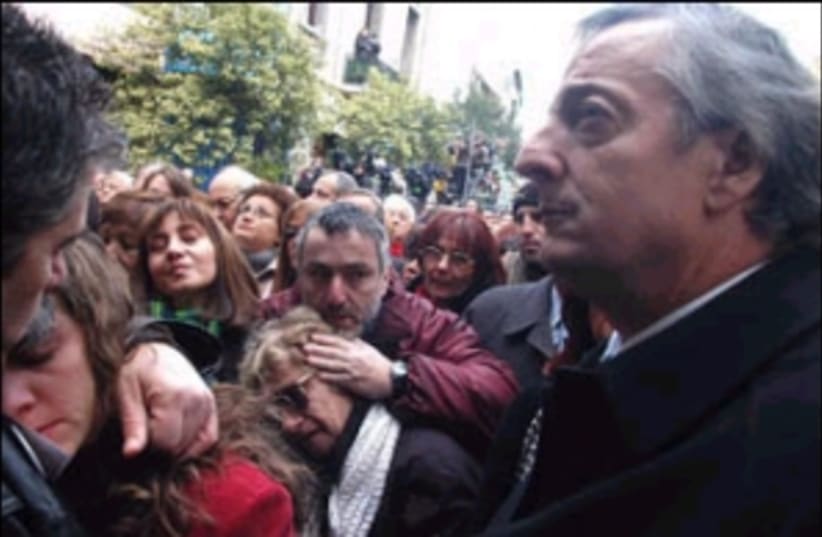| More about: | Argentina, Carlos Menem, Buenos Aires, Poland |
In Argentina, gov't moves to redress injustice toward Jews
The South American country has been more sensitive to Jewish concerns under President Nestor Kirchner.


| More about: | Argentina, Carlos Menem, Buenos Aires, Poland |